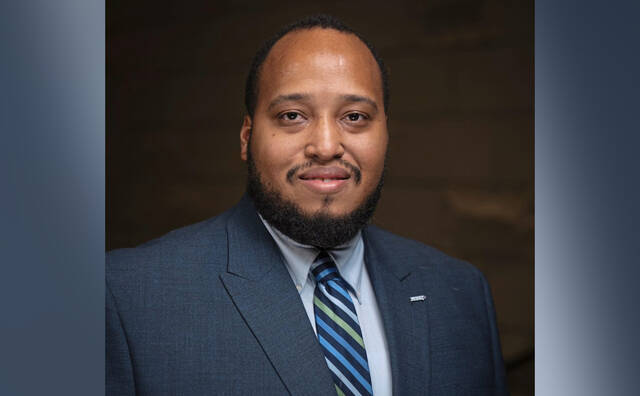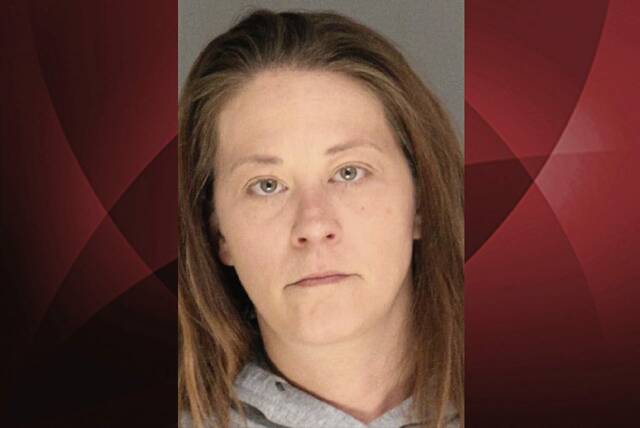When Tyler Coulverson was growing up, he only knew a CD as a small, round disc that loaded into a player and music echoed out. That’s the experience of many.
“I spent many years thinking a CD was just an old-school disc, but in reality, a CD is a certificate of deposit where you can earn a higher interest rate,” he said.
His hunger for financial education and curiosity triggered his now full-time entrepreneurial career, where he hopes to provide his clients and viewers with knowledge about homeownership and financial literacy.
“Just having someone to help you understand the terminology and lingo makes a big difference,” Coulverson said. “When you pay attention to some of the statistics out there, like the fact that the median household income for a Black family is only $36,000 compared to a little over $70,000 for all families in Pittsburgh, according to a Nielsen study, you realize the urgency.”
According to the National Association of Realtors, only 44% of African Americans are homeowners across the U.S. In Pittsburgh, Black homeownership is at 31%, according to Catapult Greater Pittsburgh.
Coulverson bought his own home about two years ago and heard horror stories about the home-buying process, including a daunting closing process, buyers not understanding the value of home inspections and a lack of awareness about down payment assistance. Having gone through it himself, he knew what could make it less arduous.
“I thought, ‘What can I do to bridge that gap and get more people of color buying homes?’ ” he said.
Financial literacy education is sometimes available in private and charter schools, but not necessarily in public schools.
“If people aren’t getting financial education at home, there needs to be other avenues for them to be exposed to it,” he said.
Through his YouTube channel “Financial Literacy with TC,” Coulverson creates accessible financial literacy content, interviewing guests on topics like budgeting, real estate, building and repairing credit, and offering advice on developing financial acumen.
Through his full-time business, TC Notary LLC, Coulverson focuses on home ownership and financial education. He started his business in 2021, initially offering mobile notary services. He visited hospitals, nursing homes and other health care facilities to help individuals, particularly those unable to get to a lawyer’s office. He also wanted the service to be affordable.
“If you just need a simple affidavit signed, it’s not going to cost $200,” he said.
Coulverson later added a financial education component to his business, offering coaching and guidance on personal finances, including budgeting and credit, which may feel inscrutable to some.
Both the home-buying and financial literacy consultations range between $100 and $149. Coulverson worked in the financial industry for about seven years and started paying attention to home-buying programs and financial courses. Many, he said, are scaled for group learning, but he recognized that not everyone can learn in that type of environment.
“One-on-one counseling is important, especially when it comes to something like buying a home, and that dedicated instruction may not be available in group settings,” he admitted. “Some people may not feel comfortable dropping their defenses and asking questions. Overcoming those barriers and hurdles is easier with individualized help.”
Lytia S. Brock, a certified life and trauma coach and serial entrepreneur, met Coulverson a few years ago at a networking event and was in the same class for the New Pittsburgh Courier FAB 40 Under 40 Awards.
“The work he’s doing in financial literacy is amazing,” Brock said. “He’s shedding light on how to better manage money, achieve future dreams and create a legacy.”
She noted that money can be a cure-all for many things, especially when used as a tool.
He uses his personal testimonies and experiences to highlight strategies and concepts to make the process easier.
Coulverson defines living well as an ecosystem with mental, physical and financial wellness in balance. He also speaks about how one aspect can impact others, particularly how a mental health crisis might affect a person’s finances.
“All those things play a factor, and they should all be addressed on some level,” he said.
In an interview on his platform, Coulverson spoke about financial trauma.
“When I think about financial trauma, I wonder if a person has the mental fortitude to handle situations like an emergency or job loss,” he said. He advises being proactive instead of reactive by budgeting, creating a financial plan and other things like having a life insurance policy.
“All of these things can be done beforehand, not just living under the assumption that nothing in my life will ever go wrong,” he said. “Ideally, nothing will, but being prepared is important.”








